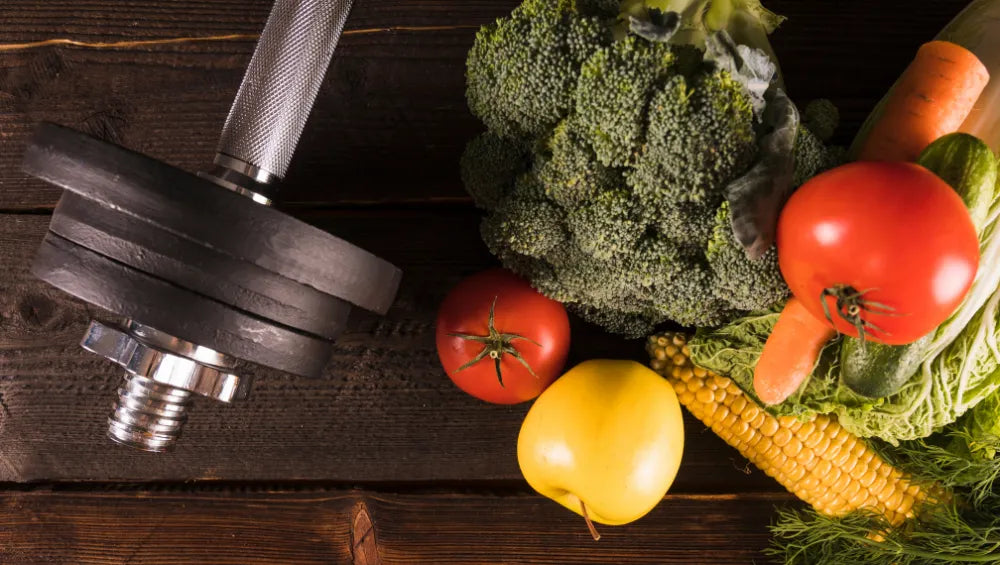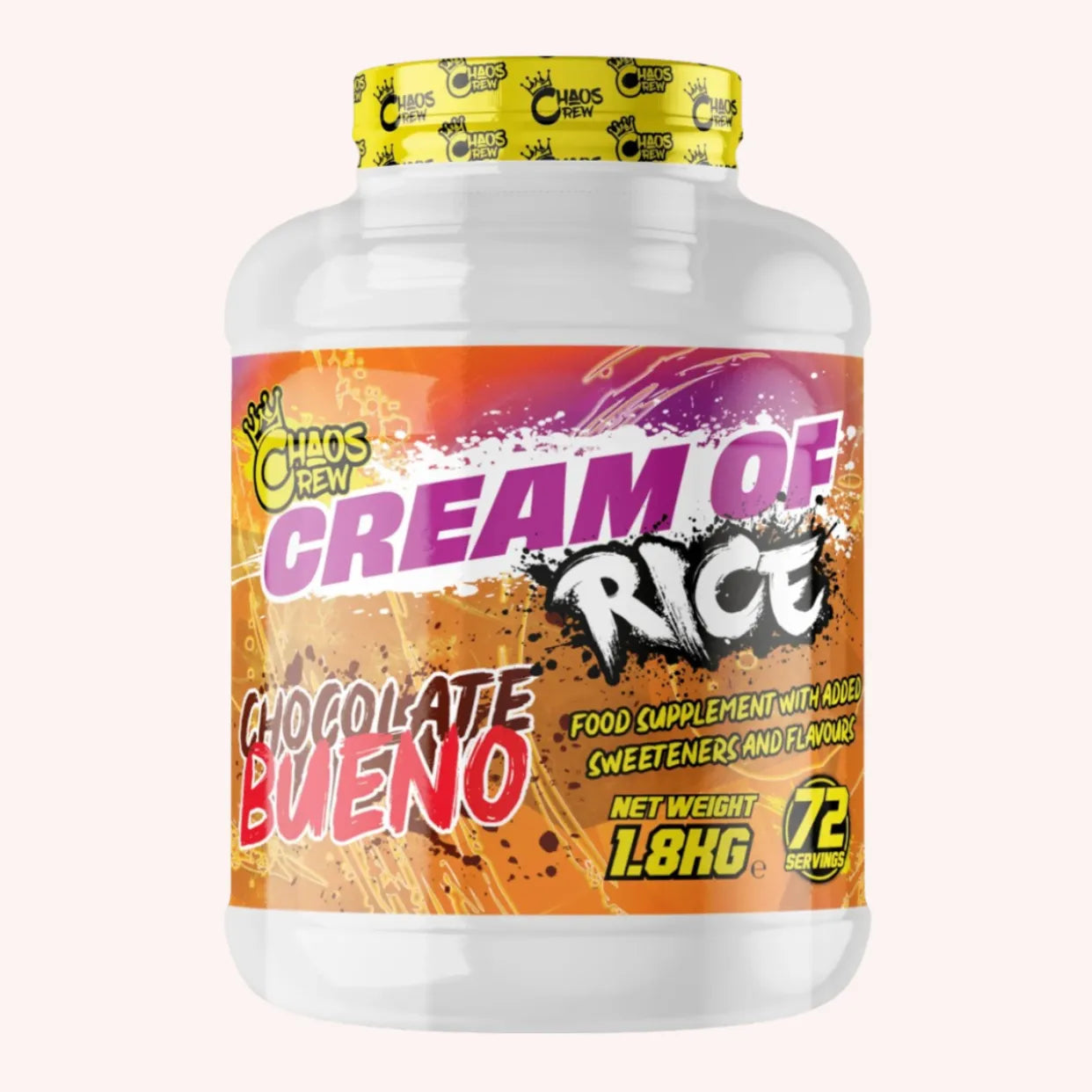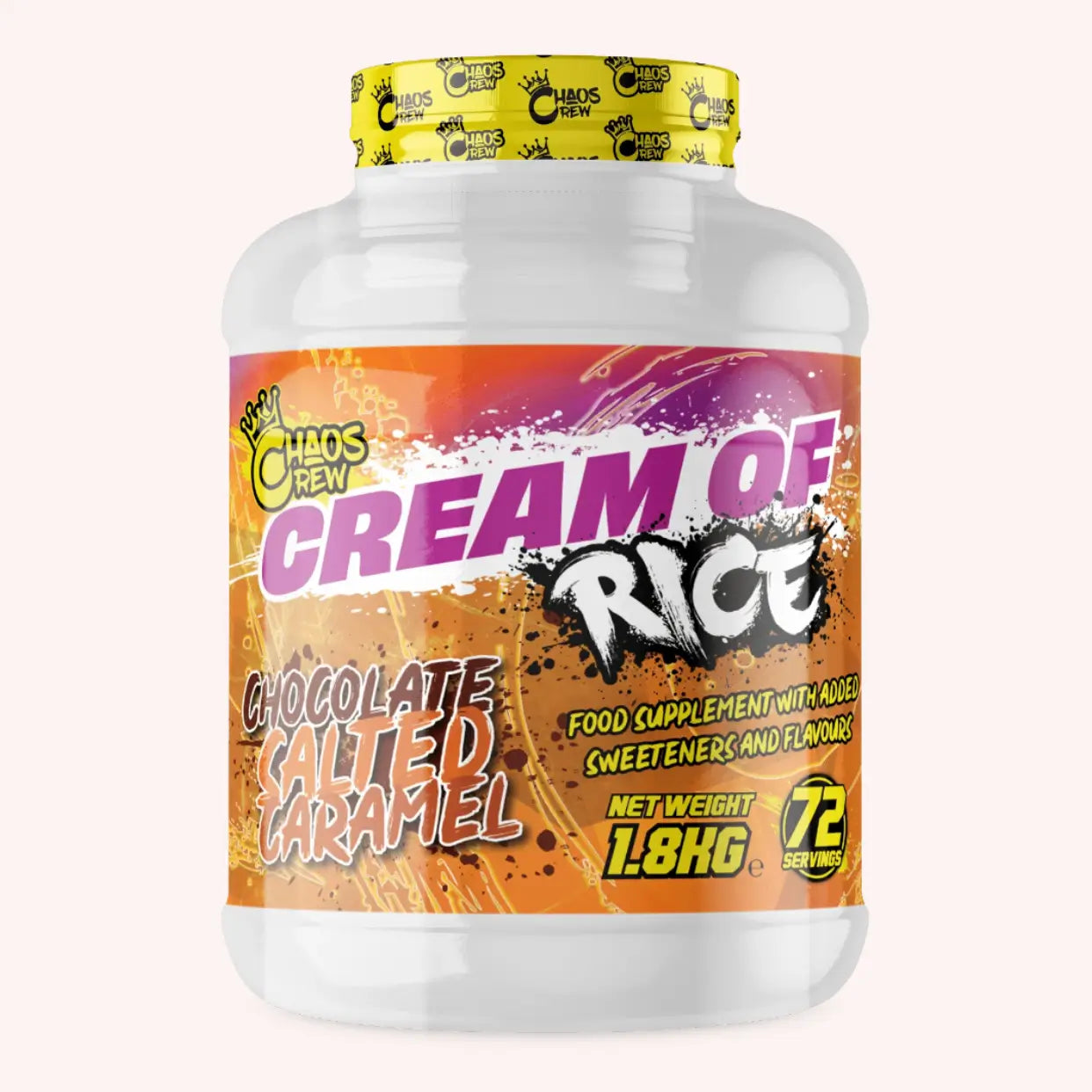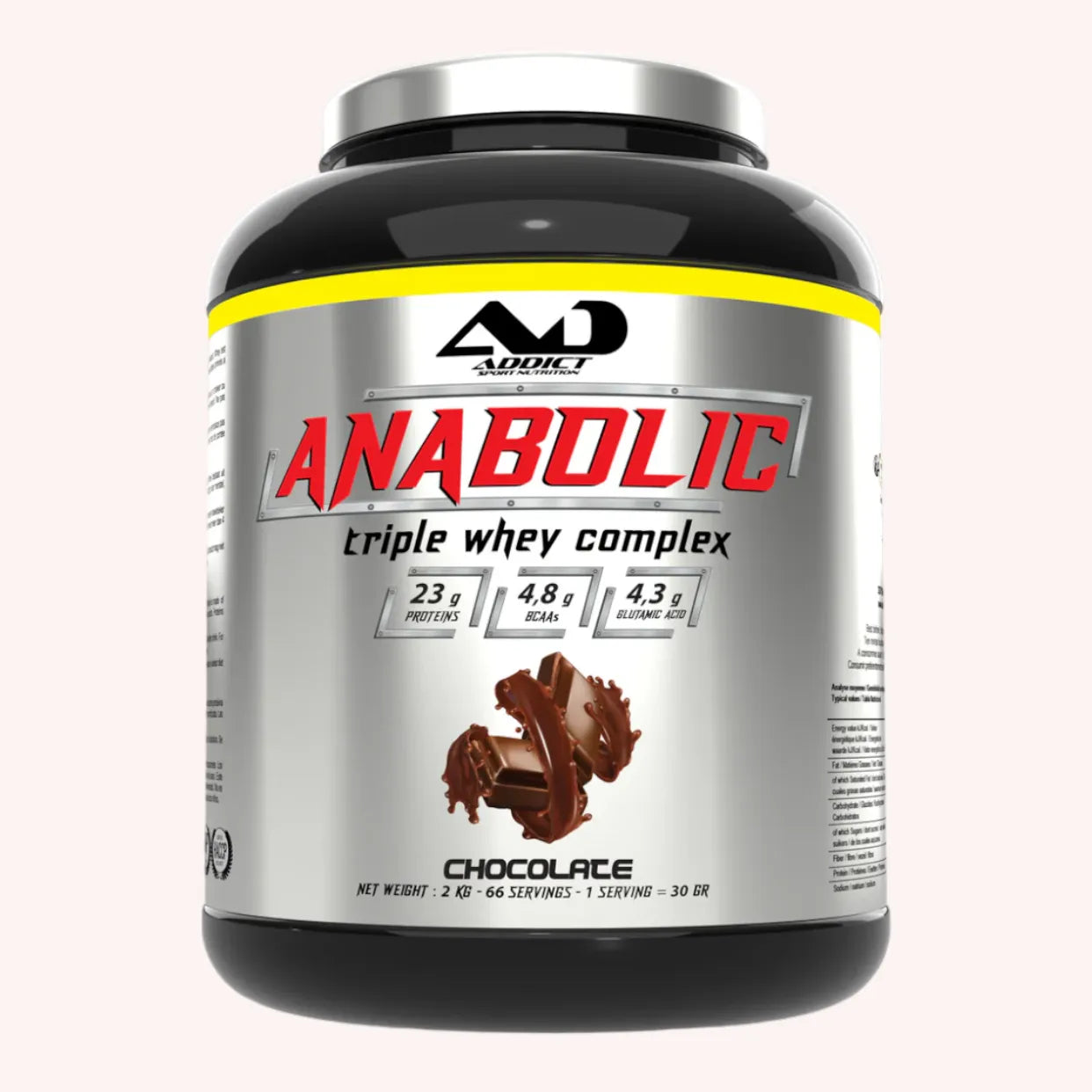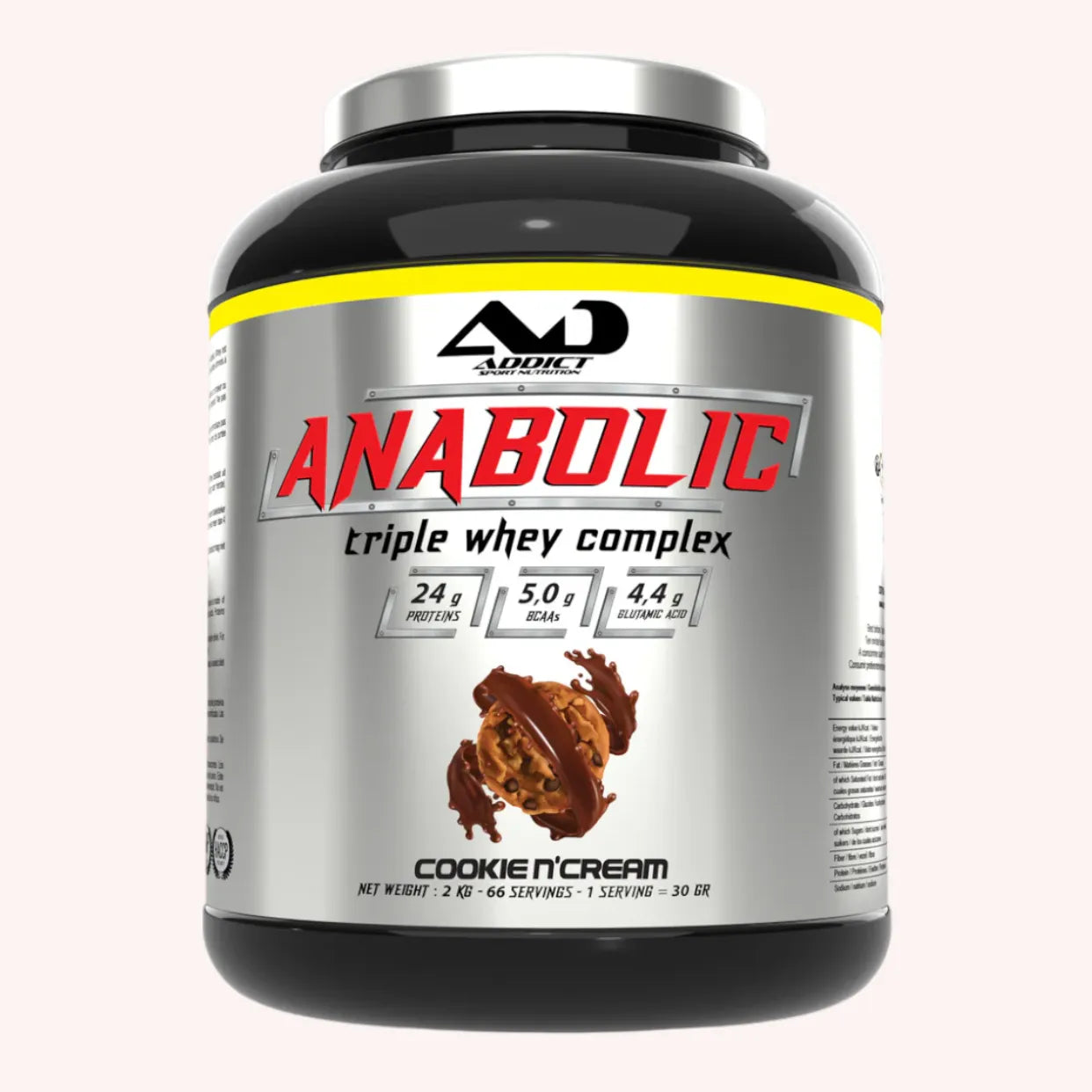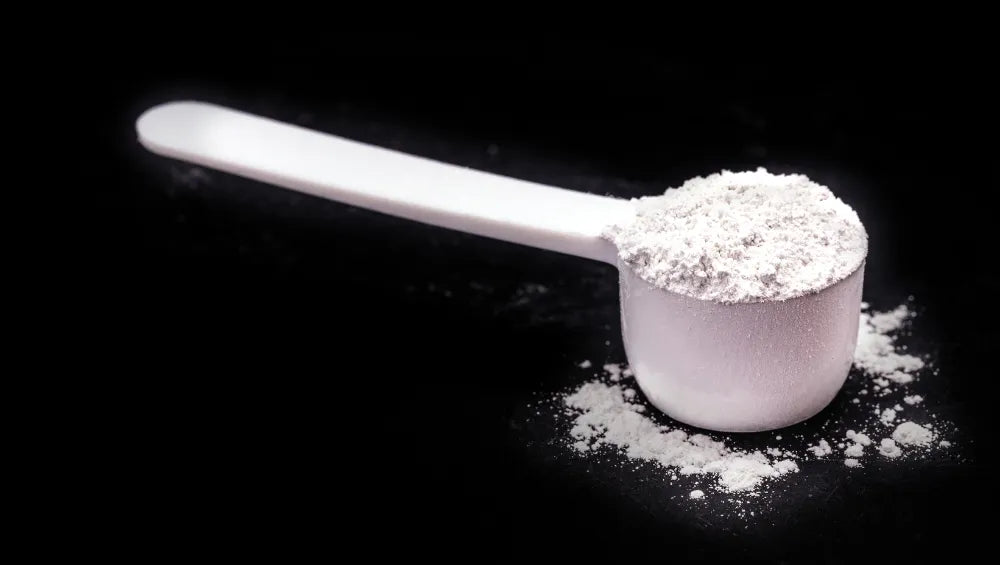Sports nutrition is an essential tool for transforming physical effort into tangible results. By mastering your diet, you can improve your endurance, increase your muscle strength, and accelerate your recovery.
This comprehensive guide presents the fundamental principles of sports nutrition , offers strategies to optimize recovery, recommends which foods to favor and gives you all the keys to establishing a nutritional plan adapted to your goals.
What are the principles of sports nutrition?
Sports nutrition is based on a few fundamental principles that aim to meet the specific energy needs of athletes while supporting their overall health .
Adapted energy intake
One of the first foundations is to provide sufficient energy intake to support physical activity. Athletes expend more calories than sedentary people, so it is essential to adjust their calorie intake accordingly.
Insufficient intake, especially in the context of mass gain and dryness , would lead to increased fatigue, decreased performance and slower recovery.
Macronutrient balance
Macronutrients—carbohydrates, proteins, and fats—are the main sources of energy and nutrients for our bodies. A balanced diet is essential to ensure an optimal intake of these macronutrients.
- Carbohydrates: They are the main source of energy for moderate to high-intensity activities. Carbohydrates are stored as glycogen in the muscles and liver, serving as fuel during exercise.
- Protein: Essential for muscle growth and repair, protein also helps maintain the immune system . High-quality protein sources include lean meats, fish, eggs, dairy products, and convenient options like liquid egg white.
- Lipids: Healthy fats provide energy for low-intensity exercise and allow for the absorption of fat-soluble vitamins.
Importance of micronutrients
Vitamins and minerals are essential for the body to function properly. For example, iron is essential for oxygen transport, while calcium is essential for bone health and muscle contraction.
Adequate hydration
Water plays a central role in regulating body temperature, transporting nutrients, and eliminating waste. Even mild dehydration can impair performance and increase the risk of injury.
Nutritional timing
The timing of your nutrient intake can influence your performance and recovery. For example, consuming carbohydrates and protein after training can help replenish glycogen stores and repair muscle tissue.
How to optimize recovery after exercise?
Recovery is a phase that should not be neglected, which allows the body to regenerate and adapt to the efforts made.
Replenishment of glycogen stores
After intense exercise, glycogen stores are depleted. Consuming high-glycemic carbohydrates within 30 minutes of exercise promotes rapid replenishment of these stores. For example, a banana or a recovery drink would be ideal to consume immediately after exercise.
Muscle repair with protein
Physical activity causes micro-tears in muscle fibers. High-quality protein intake after training provides the amino acids needed for muscle repair and growth. A serving of 20 to 30 grams of protein is generally recommended to avoid any incidents.
Hydration and electrolytes
Sweating causes a loss of water and electrolytes such as sodium and potassium. It is important to rehydrate the body by drinking water and, if necessary, electrolyte-rich drinks to restore fluid balance.
Antioxidants to reduce oxidative stress
Intense exercise increases the production of free radicals, which can cause oxidative stress, an imbalance between the excessive production of free radicals and the body's ability to neutralize them with antioxidants.
Foods rich in antioxidants, such as berries and green vegetables, help neutralize these free radicals, thus promoting recovery.
What diet for muscle development?
Muscle building requires a combination of resistance training and proper nutrition.
Sufficient protein intake
Proteins are the building blocks of muscles. It is recommended to consume about 1.6 to 2.2 grams of protein per kilogram of body weight per day to promote muscle growth .
High-quality protein sources include lean meats, fish, eggs, dairy products, and legumes.
Controlled calorie surplus
Gaining muscle mass often requires a slight calorie surplus. However, it's important that these extra calories come from high-quality foods rather than "empty calories" from refined sugars and saturated fats. For example, eating fresh fruit instead of sugary sweets can contribute to a beneficial calorie intake .
By prioritizing nutrient sources like lean protein, complex carbohydrates, and unsaturated fats, you provide your body with the energy and nutrients essential for muscle growth while limiting unwanted fat gain.
Carbohydrates for energy
Carbohydrates provide the energy needed to sustain intense workouts. They also help preserve muscle protein by preventing the body from using it as an energy source.
Healthy Lipids
Unsaturated fats, like those found in avocados, nuts, and olive oil, are important for hormone production, including testosterone, which promotes muscle growth . Using cooking sprays and oils helps control fat intake while still benefiting from healthy fats.
What foods should athletes favor?
Choosing the right foods is essential to providing the body with the nutrients it needs.
Nutrient-rich foods
- Fruits and vegetables: Rich in vitamins, minerals and antioxidants, they support the immune system and overall health.
- Whole Grains: Brown rice, quinoa, and whole-grain pasta provide complex carbohydrates for sustained energy. Whole-grain flours and grains are also a great option for meal prep.
- High-quality protein: Lean meats, fish, eggs, low-fat dairy, and plant-based sources like tofu and legumes.
- Healthy Fats: Nut butters like peanut butter and almond butter are also excellent sources of healthy fats.
Foods to limit
- Refined sugars: Candy, pastries, and sugary drinks can cause insulin spikes and don't provide essential nutrients. Using zero-sugar jams or flavors and sweeteners will help you reduce your added sugar intake.
- Processed foods: Often high in saturated fat, salt, and additives, they can be detrimental to health and performance. To add flavor without extra calories, you can use zero-calorie sauces that contain no added sugars or fats.
Hydration with water
Water should be the primary beverage for athletes. Isotonic drinks can be consumed during prolonged sessions, but water remains essential and should be preferred.
How to establish a suitable nutritional plan?
Establishing an effective nutritional plan requires a personalized approach.
Energy needs assessment
Start by estimating your calorie needs based on your basal metabolic rate and physical activity level. Online tools or consulting a nutritionist can help you effectively with this process.
Defining objectives
Your specific goals, whether it's losing weight, gaining muscle mass , or improving endurance , influence your nutrition plan.
Macronutrient Distribution
- Carbohydrates: 45-65% of total calorie intake for most athletes.
- Protein: 15-25%, adjusting according to muscle development needs.
- Lipids: 20-35%, favoring unsaturated fats.
Meal planning
Plan your meals and snacks to fit your training schedules, taking into account nutritional timing to optimize performance and recovery.
Including convenient snacks like protein snacks or rice cream preparations can make it easier to stick to your nutrition plan.
Monitoring and adjustment
Monitor your progress and adjust your plan based on how you feel, your performance, and your goals achieved or in progress.
What are the nutritional needs of athletes?
The nutritional needs of athletes are higher than those of the general population due to their increased energy expenditure and the physical stress they experience.
Increased energy needs
Athletes need more calories to maintain their body weight and support performance. Inadequate intake can lead to chronic fatigue and a significant risk of injury.
Increased protein needs
As mentioned earlier, protein is essential for muscle repair and growth . Strength and endurance athletes have higher protein needs that should not be overlooked.
Specific micronutrients
- Iron: Particularly important for endurance athletes,
- Calcium and Vitamin D: Essential for good bone health, they help strengthen bones.
- Antioxidants: Vitamins C and E help combat oxidative stress induced by intense exercise.
Enhanced hydration
Water loss is greater in athletes due to sweating. Adequate and continuous hydration is necessary to maintain performance and health.
How does nutrition influence athletic performance?
Nutrition has a direct impact on the body's ability to perform and recover from exercise.
Muscle function
Protein provides essential amino acids for muscle repair and building . It helps maintain muscle mass and aids in recovery after exercise. Additionally, minerals like calcium and magnesium are essential for efficient muscle contraction and optimal nerve transmission. Calcium is involved in triggering contractions, while magnesium promotes muscle relaxation.
A proper balance of these nutrients reduces the risk of cramps and injuries, ensuring efficient muscle function.
Fatigue prevention
Iron enables the transport of oxygen to the muscles via hemoglobin. Adequate iron levels improve endurance and delay the onset of fatigue. B vitamins, including B6, B12, and folic acid, are involved in energy metabolism by helping convert nutrients into usable energy.
A deficiency in iron or B vitamins can lead to decreased performance and increased feelings of fatigue.
General health
A balanced diet strengthens the immune system . Antioxidants found in fruits and vegetables help neutralize free radicals produced during intense exercise, thus reducing oxidative stress.
Maintaining good overall health allows for faster recovery and better adaptation to training.
Optimized recovery
Nutrients consumed after exercise directly influence the speed and efficiency of muscle recovery . A combination of carbohydrates and protein promotes glycogen resynthesis and the repair of damaged muscle fibers .
For example, eating a fruit and protein smoothie with almond butter or peanut butter, or a meal that includes brown rice and chicken can speed up the recovery process.
Sports nutrition is an essential element in achieving your physical goals and improving your performance.
By understanding the basics, choosing the right foods, and tailoring your diet to your specific needs, you can optimize your training and promote effective recovery.
Sources:
- Academy of Nutrition and Dietetics, Dietitians of Canada and American College of Sports Medicine, Position of the Academy of Nutrition and Dietetics, Dietetians of Canada, and the American College of Sports Medicine : Nutrition and Athletic Performance, 2016, Journal of the Academy of Nutrition and Dietetics; 116(3):501-528. : https://pubmed.ncbi.nlm.nih.gov/26920240/
- CERIN - Protein requirements of athletes (quantitative and qualitative aspects) : https://www.cerin.org/articles/besoin-en-proteines-des-sportifs-aspects-quantitatif-et-qualitatif/
- Professor Xavier Bigard – Associate Professor at Val-de-Grâce, INSEP Research Department, Scientific Advisor to the President of the French Anti-Doping Agency (AFLD) : https://www.cerin.org/breves-scientifiques/sportifs-les-produits-laitiers-pour-recuperer-du-muscle/




